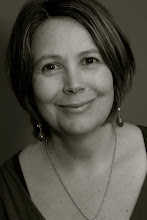Day 2
I open the box and take out the book. It is a book for a giant. I feel like I’ve got something totally from another world. Full of fantasy pictures and just so well, huge. I leaf through it and put it aside. So un-yieldy and big, I’ve stumbled into a giant’s castle and stolen his book.
Day 3
I start to read The Red Book. I am daunted and unsure. I have to lean onto the book to be able to read it. It feels uncomfortable and yet the words bring me a history of Jung. I start to see the patterns and schemas and it’s unnerving, I’m not so sure that I want to understand this much anymore. This is a brief shakedown: Jung’s father is a minister. Jung therefore is steeped in Christian tradition and metaphor, if not belief. These metaphors and world views permeate the worldview of Jung’s time and place.
Day 4
The introduction reminds me of the turn of the century, pre world war II. Hypnosis, Freud, mediums conducting seances, the world of fairies, this is the world into which Jung is growing up. Ironically, I read a Time (Nov. 22, 2010) article on Mark Twain today. Finally, it is 100 years since Twain’s death, and so his complete autobiography is being published. Seems this guy who was so acerbic, understood the power of his pen. Twain decried the new worship of money by saying about rogue financier Jay Gould that he was “The mightiest disaster which has ever befallen this country.” Twain continues, “The people had desired money before his day, but he taught them to fall down and worship it.” But it is this quote by Twain that most intrigues me: “[Mankind] was not made for any useful purpose, for the reason that he hasn’t served any; that he was most likely not even made intentionally; and that his working his way up out of the oyster bed to his present position was probably a matter of surprise and regret to the Creator (p. 104).”
Twain predates Jung by about 40 years, was on a different continent, yet nonetheless, seemed to also be probing this infernal question: Why are we here? Whereas Twain is witty and blasphemous, Jung is ever serious and the mystic, and in The Undiscovered Self, says this:
All mass movements, as one might expect, slip with the greatest ease down an inclined plane made up of large numbers. Where the many are, there is security; what the many believe must of course be true; what the many want must be worth striving for; and necessary, and therefore good. In the clamour of the many resides the power to snatch wish-fulfilments by force, sweetest of all, however, is that gentle and painless slipping back into the kingdom of childhood, into the paradise of parental care, into happy-go-luckiness and irresponsibility. All the thinking and looking after are done from the top; to all questions there is an answer, and for all needs the necessary provision is made. The infantile dream-state of the mass man is so unrealistic that he never thinks to ask who is paying for this paradise. The balancing of accounts is left to a higher political or social authority, which welcomes the task, for its power is thereby increased; and the more power it has, the weaker and more helpless the individual becomes (p. 33).
Who is paying for this paradise? Have things really changed as we are now in the 21st century? What changes? What stays the same? Who is God? What is man? Do the answers that we give ourselves to these questions have any impact on our real, lived lives? Solomon, in all his wisdom said, “This too is meaningless, a chasing after the wind.” Ecclesiastes 1:17-19 brings us this from Solomon: “I said to myself, ‘Look, I have increased in wisdom more than anyone who has ruled over Jerusalem before me; I have experienced much of wisdom and knowledge.’ Then I applied myself to the understanding of wisdom, and also of madness and folly, but I learned that this, too, is a chasing after the wind. For with much wisdom comes much sorrow; the more knowledge, the more grief.”
Subscribe to:
Post Comments (Atom)

No comments:
Post a Comment